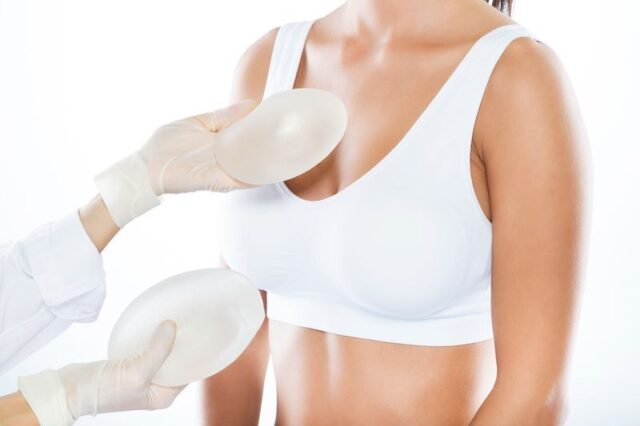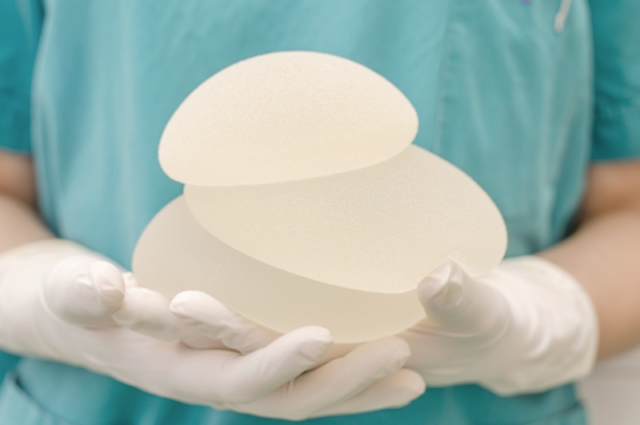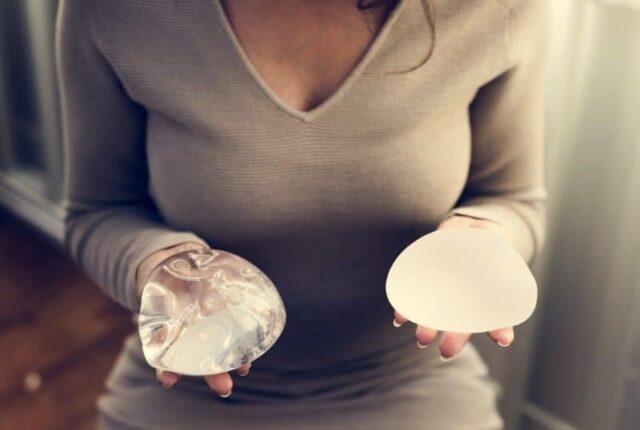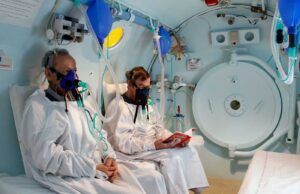
How long have you had your breast implants? The majority of women who get breast implants do not receive much by way of follow up care after they have completely healed from the surgery.
Perhaps when you had the augmentation procedure, your plastic surgeon mentioned that you should get checkups and potentially have other testing done in order to ensure that your breast implants were still in good condition. At the time, fresh from surgery with breasts you love, you may have thought that you had many years before you needed to be concerned about that.
However, if it has been several years since you had your augmentation surgery, you may need to consider getting your implants checked out. It is important to note that if you feel there is something not quite right with them, you need to reach out to your plastic surgeon. Whether it has been just one month or it has been a decade, you shouldn’t hesitate to reach out to a professional if you feel something is off.
How often should silicone breast implants be checked?

Plastic surgery experts, such as those at www.dranh.com.au, recommend different approaches for different types of breast implants. Silicone ones should be screened with an MRI or ultrasound about three years after they have been placed. After the initial screening, silicone breast implants should be screened every two years after. Why so often, you may wonder? Some professionals may recommend that your breast implants do not need to be checked on until you notice a problem. However, silicone ones may potentially be at risk for what is known as a silent rupture.
Silicone implants of years gone by were not made with the same firm gel as they are today. When an implant ruptured it was typically quite easy to detect. Today, the silicone implant is made using a much firmer gel that will actually hold its shape; even if the exterior shell of the implant ruptures. A silent rupture can be quite difficult to detect if imaging technology isn’t used. A patient may have a silent rupture for several years, without knowing about it.
There isn’t any strong medical evidence that hints at a silicone rupture being harmful to the health of the patient. However, it’s still important to detect so it can be replaced.
How often should saline breast implants be checked?

Saline implants are not at risk of a silent rupture. This is due to the fact when the saline implant ruptures it’s typically quite apparent. The saline leaving the breast implant shell tends to deflate the breast quite noticeably. This means that you will be able to wait anywhere between 5 and 10 years between getting them checked.
For some women, the frequency of needing to check on the implants may be a deciding factor. There are definitely benefits to each of the types of them, so be sure that you size them up prior to making your decision.
The importance of the scheduled mammogram

It is very important to keep in mind that you will still need to go for your scheduled mammograms. Regardless of the type of breast implant that you have, your doctor will still recommend mammograms. The mammogram can feel quite uncomfortable, but it will not result in damage to your breast implants. The mammography professional has been thoroughly trained to perform the procedure on patients with augmented breasts.
There is only some evidence that links breast implants and a certain type of cancer. They are not considered to increase your risk for breast cancer. There is however a rare form of lymphoma that is in fact an immune system cancer. Symptoms common to this lymphoma include enlargement in the breast, pain, a lump in the breast or in the armpit or asymmetry. Hardening of the breast is another symptom to be aware of. It is linked to breast implants with textured surfaces. It is not a type of breast cancer.
That said, it is essential that your breasts be screened for breast cancer as you grow older. Women over the age of 45 are at an increased risk for developing one or more types of breast cancer. It is important to note that your doctor may order additional testing, as some of them may make it more difficult to see the entirety of the breast during the mammogram.
When to schedule a checkup
It can be difficult to know just what constitutes a need to call your doctor for a checkup on your breast implants. You should get them looked at if you are experiencing any of the following concerns.
Unusually hard breasts, with or without pain. This is a potential symptom of capsular contracture. An average of 10% of patients develop a degree of capsular contracture, with some needing to undergo surgery in order to remove the implant and develop scar tissue.
Breast pain, with or without swelling. Swelling and a buildup of fluid could potentially be a symptom of anaplastic large cell lymphoma. It’s notable that the large majority of patients experiencing pain and swelling do not have lymphoma.
Asymmetry of the breast. This could be attributed to any number of concerns, including a leak or rupture of the implant.
The key point is that you shouldn’t ignore any changes in your breasts. This holds true even for patients who do not have breast implants. The sooner that any issues are detected and treated, the better the results of treatment will be.
Maintaining a relationship with the plastic surgeon

Even if you are completely thrilled with the results of your breast augmentation surgery, it is quite important that you maintain a strong relationship with the plastic surgeon. Take the time to see the surgeon every few years, for several key reasons.
Breast implants are not designed to last forever. While some patients may be able to keep them for more than two decades, they are not designed to be lifetime devices. In time, your implant will likely need to be replaced. The risk of a rupturing will increase after the first decade. At the very least, you should be seen by your plastic surgeon every ten years.
Your body and your breasts will naturally change through the years. Fluctuations in weight, pregnancy, breastfeeding and the natural aging process can alter your breast tissue. After some time, they may not feel or even look the same. The periodic visit with your plastic surgeon will give you the opportunity to discuss your options for maintaining or improving the results of your breast augmentation surgery.
The warranty on your breast implants may expire. While the majority of manufacturers will offer a lifetime guarantee, any coverage for a revision surgery may expire within a few short years. In the event that you were to experience a silent rupture or experience another issue with your implants, you will be glad to have uncovered the issue while your warranty is still within term.
Whether it has been just a few months or it has almost been ten years, don’t hesitate to take care of your breasts. Even patients who are completely satisfied with the results of their surgery should maintain their health and the health of their implants with periodic visits to their plastic surgeon.







